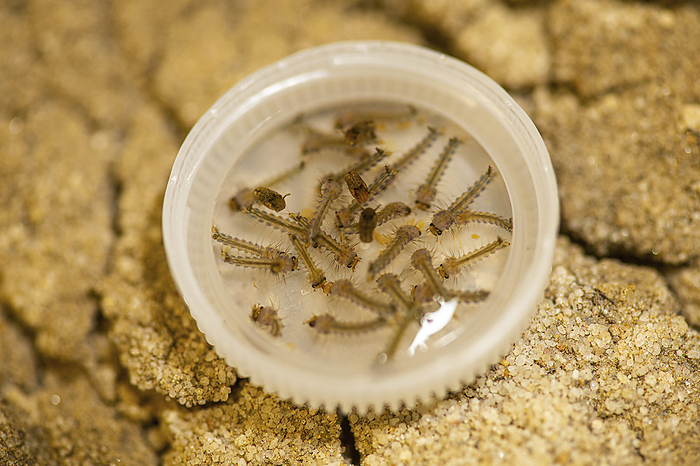
RM
Yellow fever mosquito larvae
Yellow fever mosquito (Aedes aegypti) larvae in a bottle cap. Yellow fever mosquito larvae live in pools of standing water, becoming pupae in around 5 days, and hatching into adult mosquitoes 2-3 days after this. The adult mosquitoes are known vectors of yellow fever virus, dengue virus, chikungunya virus, and Zika virus, with studies suggesting that they are potential vectors for Venezuelan equine encephalitis virus and West Nile virus. The female adult mosquitoes feed on mammalian blood, and in doing so can transmit these viruses to the mammal, leading to infection and allowing the virus to complete its life cycle. As yellow fever mosquitoes preferentially feed on humans, they are of particular concern in the spread of human disease., by CDC, Amy E. Lockwood/SCIENCE PHOTO LIBRARY

More
Top Categories
